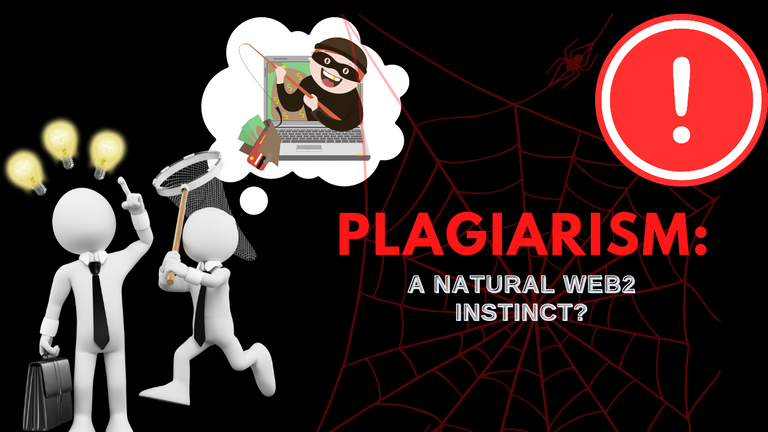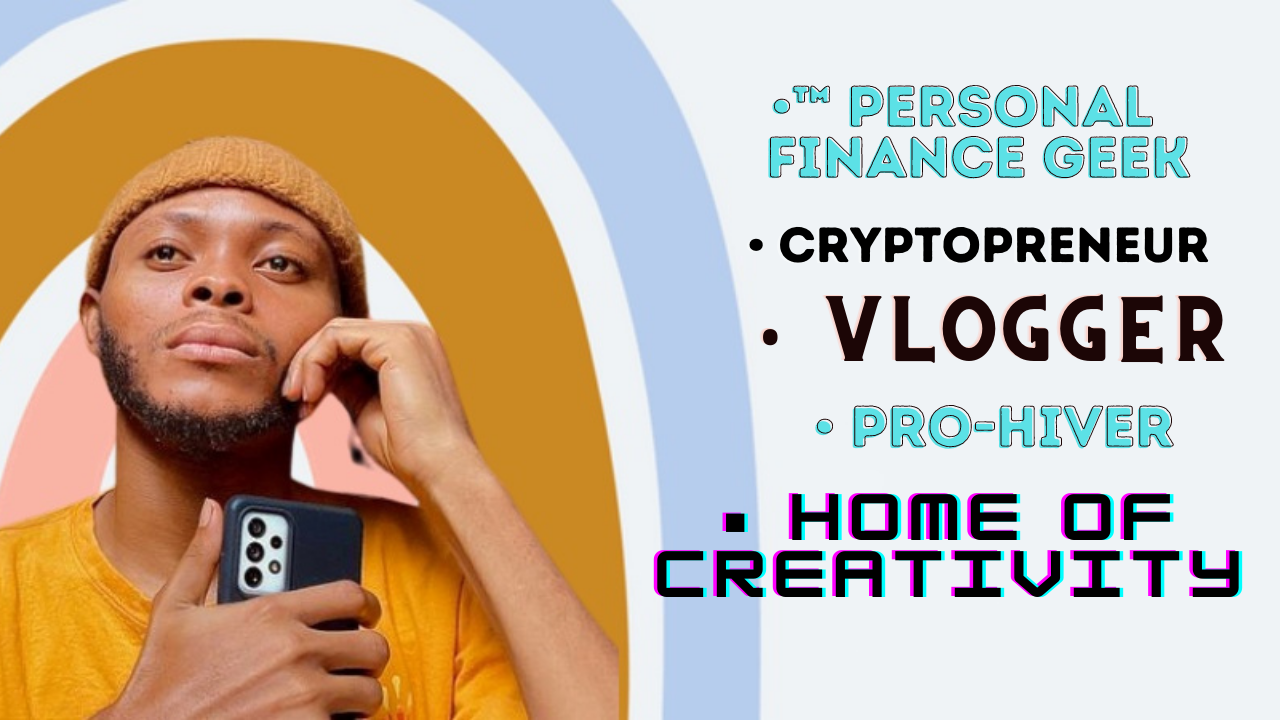
I saw an interesting post by @finguru which talks about plagiarism and the truth is that we'd never get rid of plagiarism as long as centralized web2.0 platforms still exist. Why is this? Originally it was hard for you to see the abhorrence of plagiarism on social media.
Most of the people we're trying to onboard are from one traditional media to another, all their lives online, they're used to reposting replying, or reacting "Haha" to someone else's content they can refurbish these contents and make it theirs and the cycle keeps going.
I don't know how Facebook, Twitter or Instagram's monetization process is, but I felt that because the regular user wasn't there to monetize their content.
The Money Intent
Some of these people are there to educate themselves, entertain, or create online opportunities to monetize their real-time or online hustles. So this media doesn't originally monetize people but then, it gives people the opportunity of a diverse audience which creates money-making opportunities.
So because traditional media does not monetize ordinary users, it was difficult to put plagiarism checks in place because nothing was really at stake. Plagiarism becomes an issue when there's something at stake.
The truth is, most people don't even know how to create content on traditional media because it wasn't really about content, it was more about people coming to establish different agendas Facebook is broad, the fact that it allowed heterogeneity means that there aren't many limits to what people could do and because of this, it was easier to be on Facebook and not understand the core of content creating because nothing was at stake.
The "Hive" Tradition
But here on Hive, plagiarism check is strict because there's a reward pool, everyone is expected to "earn" this reward pool. Because the aim of Hive is a little bit boisterous, it makes it difficult for people to do whatever they like.
This is because we have people who are actual investors and stakeholders, their direct opinion and beliefs are directly reflected in the way the reward pool is distributed and this is why things like plagiarism aren't given a pass.
Many would say this feels monotonous, but one of the reasons why plagiarism rules will never stand is because the regular Hive user has the opportunity to monetize their content while this isn't the same for a regular Facebook user.
The "Web2.0" Pattern
So, we will always treat the issue of plagiarism because a lot of people who we're onboarding are and will still be web2 minded. So these people would originally find it difficult because they need to be unique and creative to be here.
Some of the people who cannot cope with this would say Facebook is better because it doesn't require much to create content, but we all know that they go back to Facebook because they're disappointed that their regular style of plagiarism wouldn't work here.
Now, I believe creating apps that can mirror web2 pattern of content creating can help with this aspect of retention, I cannot tell. But why plagiarism will always be a "thing" is because there's a pool that the distribution is tied to the stakes of actual people.
Burned & The Allegations Of Centralization
We've seen people who repost content and get flagged for plagiarism, but they get all angry and call the system "centralized" when all they should understand is that what is at stake makes the rules of content creating to be quite challenging. At the end of the day, we all know that it isn't morally right to earn money for the intellectual property of others whether it's digital or physical.
I know big TikTok users who are making money off the content of legit creators on Facebook but no one is pointing fingers as to why this is so.
So I guess plagiarism is just a natural web2 instinct people are used to stealing the intellectual properties of others and they try to demean this as something that's okay.
Hive will continue to get the sticks when it comes to plagiarism. Many people will continue to see nothing wrong with plagiarism and this will be because it's done on other web2 platforms, they just fail to understand that "the money" and the human factor will always make a big difference.
Interested in some more of my works?
Keying Into Sophistication & Exposure To Forestall Economic Revolution
Money: The Learning Curve & Translational Process
What Makes A Job Opportunity Lucrative?
Shopping Online & The Illusion Of Buying Cheap Things
The Humanistic Approach Towards Scarcity & Competition
Spending & Accumulating: The Low & High Point Of The Crypto Seasons.

Posted Using LeoFinance Beta